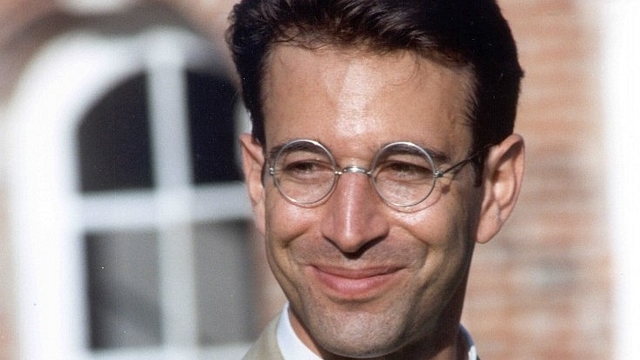
Daniel Pearl Murder Case: Former Spy Agency Chief Of Pakistan Played Role In Acquittal Of Terrorist Omer Sheikh
Pakistan's Minister for Interior and former chief of its internal spy agency Brigadier Ijaz Ahmed Shah may have played a role in the acquittal of Omer Sheikh, the terrorist whose death sentence was commuted in the Daniel Pearl beheading case.
A Sindh court on Thursday commuted the death sentence of the British-born terrorist and a dropout of London School of Economics, Sheikh, a prime accused in the kidnapping and decapitation of Wall Street Journal journalist Daniel Pearl 18 years ago, to seven years in prison. Since Sheikh has already spent 18 years in jail, the prison term is considered completed.
Investigators in Washington who have been following the case closely said that Ijaz Shah shares a good relationship with Omer Sheikh, which goes way back to their friendship between their families. Both Shah and Sheikh come from the same village, Nankana Sahib in Punjab province, sources said.
As a powerful chief of Intelligence Bureau, Shah was the "point-man" of the Pakistani Army to talk and negotiate with all the wanted criminals and terrorists. "Sheikh turned himself in, at Shah's behest in February 2002 when police were trying to arrest him," sources said.
Shah and the ISI, sources said, kept Sheikh in secret custody for a week, not even telling the Pakistani counter-terrorism police. "Sheikh's turnover to police was rigged, as is the Sindh court to free him," sources told IANS.
Brigadier Shah who was appointed as interior minister last year by Prime Minister Imran Khan, remains a highly controversial figure in Pakistan. Former Prime Minister and PPP chairperson Benazir Bhutto had named Shah in a letter as someone who should be investigated if she was assassinated. After her assassination, the PPP accused Brig Shah of having links with Al Qaeda and Taliban.
As Director General of the Intelligence Bureau (IB) from 2004 to 2008 under General Pervez Musharraf, Shah was accused of using the IB for political victimisation. Shah continued to be Musharraf's trusted aide even after he was ousted. Gen Musharraf had nominated Shah as High Commissioner to Australia, but Canberra refused to accept his nomination, forcing the government to withdraw it.
Omer Sheikh, on the other hand, a prominent member of Harkat ul-Ansar terror group, before his Daniel Pearl beheading notoriety, was involved in the kidnapping and murder of four western tourists in Kashmir in 1994. He was released from a jail in India, along with terrorist Masood Azhar, in exchange for passengers of the hijacked Indian Airlines flight IC814 in 1999.
In Pakistan, Sheikh associated himself with Taliban, with whose support he had been released. A New York Times 2002 report 'A nation challenged: A Suspect's Confession in 1994 case evokes Pearl abduction' pointed out that the two kidnappings were starkly similar. Apart from tactics and fabulous tales to entice abductees, in both kidnappings, "the victims were shackled at the ankle, and photographs of the victims were taken with a daily newspaper in the frame to fix the date. In both, ensnaring an American seems to have been the priority."
The demands, the NYT report said, were also similar. "The 1994 kidnappers wanted the freedom of Islamic militants jailed in India; Mr. Pearl's kidnappers are seeking the release of Pakistani prisoners from the Afghan war."
Shockingly, Pervez Musharraf in his biography 'In the Line of Fire' alleged that Omer Sheikh was first recruited by British intelligence agency MI6 while studying in LSE but at some point turned rogue or a double agent.
Sources in Washington said Interior Minister Ijaz Shah may have "used the coronavirus distraction to free his family friend's son Omer Sheikh, at a time when America is also allowing the release of Taliban prisoners in Afghanistan."